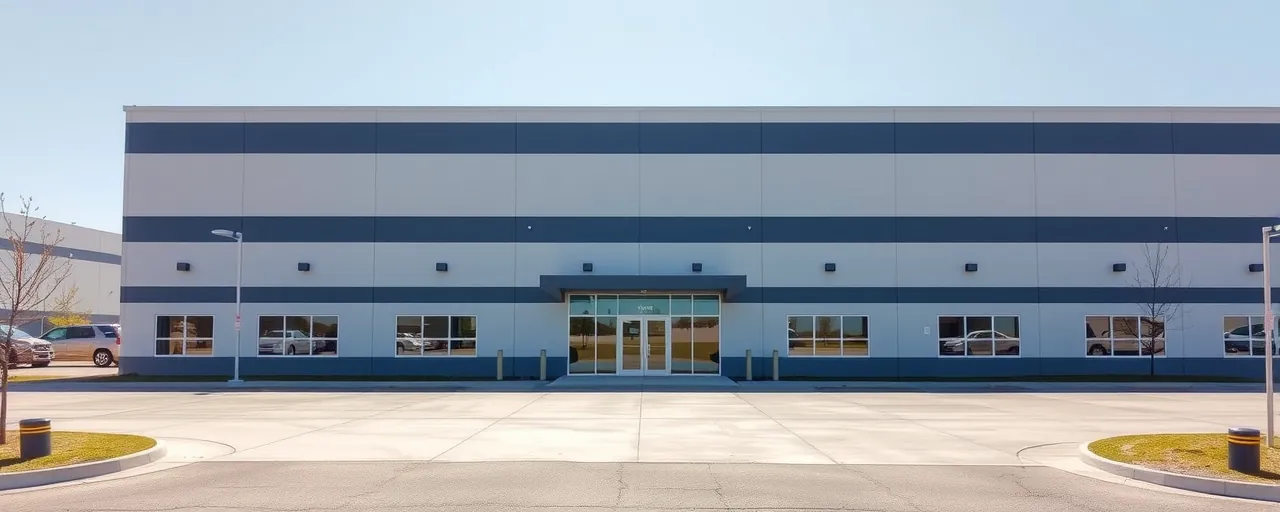A Mirage of Economic Triumph
President Trump’s recent corporate investment announcements, totaling over $5 trillion, dazzle with promises of prosperity. Companies like Sanofi, Kraft Heinz, and Carrier pledge billions for U.S. factories, with claims of thousands of new jobs. The White House calls this a new Golden Age for American manufacturing. Yet, a closer look reveals these deals favor corporate profits over the needs of everyday workers.
For those of us who champion an economy that benefits all, this moment demands tough questions. Are these investments rebuilding communities, or merely boosting corporate earnings while leaving workers behind? The evidence points to the latter.
Sanofi’s $20 billion commitment focuses on high-margin pharmaceuticals, not widespread job creation. Kraft Heinz’s $3 billion factory upgrades lean heavily on automation, sidelining human workers. Carrier’s $1 billion pledge, tied to 4,000 jobs, relies on short-term construction roles rather than lasting careers. These pledges fall short of the transformative change we need.
Workers, small business owners, and families deserve more than flashy headlines. They need stable jobs, fair wages, and thriving communities. Instead, we see corporate handshakes celebrated as victories by an administration prioritizing optics over real progress.
Can we trust these pledges to deliver? Past corporate promises often faded when profits waned. Workers deserve concrete commitments, not recycled rhetoric.
What Really Drives Progress
Compare Trump’s approach to the success of federal policies like the Bipartisan Infrastructure Law, CHIPS and Science Act, and Inflation Reduction Act. These have sparked over $150 billion in private investment, creating nearly 45,000 jobs across 164 new or expanded facilities. Every public dollar invested draws $5.47 in private funds for clean energy and advanced manufacturing. This reflects policy that prioritizes people.
Advocates for equitable growth drove these laws, revitalizing communities long neglected. Semiconductor plants, battery factories, and clean-energy hubs now create sustainable jobs. Unlike Trump’s headline-driven pledges, these investments stem from careful, long-term planning.
Yet, some push to repeal these policies, arguing they distort markets. This ignores clear evidence: government incentives have fueled a manufacturing revival, with 2025 forecasts showing a 4.2% revenue rise and 0.8% job growth. Companies like Johnson & Johnson and GE Aerospace are hiring thousands due to these policies, not vague corporate promises.
Critics of these laws often advocate deregulation and tax cuts, claiming they spark innovation. However, the 2017 Tax Cuts and Jobs Act boosted corporate profits but failed to drive manufacturing jobs until targeted incentives emerged. Deregulation, meanwhile, has weakened worker protections and environmental standards, harming communities.
Why abandon proven policies for ones that fall short? The difference lies in values: one approach uplifts workers and sustainability, while another prioritizes corporate gains over public welfare.
The Fallout of Misguided Trade Policies
Trump’s trade policies, linked to these investment pledges, expose deeper flaws. His tariffs aim to bring jobs home but create chaos instead. Rising raw material costs have stalled factory expansions. Small business confidence has dropped 50%, and layoffs have surged fourfold in months. These policies undermine workers, not protect them.
Nearshoring moves, like Siemens Healthineers shifting production from Mexico to California, owe more to global trends than Trump’s vision. Rising offshore labor costs, supply-chain disruptions, and USMCA incentives drive these shifts. Companies adapt to survive, not to align with an administration’s agenda.
Workers bear the consequences. Tariffs inflate prices, straining family budgets. Delayed investments mean fewer stable jobs. The focus on splashy pledges ignores the need for training, wage growth, and worker protections. We need policies that foster resilience, not uncertainty.
Supporters of aggressive tariffs claim they shield domestic industries. Yet, protecting industries at the cost of small businesses and consumers offers no real win. A balanced strategy, combining incentives, trade agreements, and worker-focused policies, would deliver results without collateral damage.
Building a Better Future
The stakes are immense. As Trump celebrates corporate deals, we must hold him accountable. Will these investments create lasting jobs, or vanish when headlines fade? Will they strengthen communities, or simply enrich corporations? We need leaders who value people over photo ops.
The way forward is clear: expand proven policies. Bolster the CHIPS Act to maintain our technological lead. Enhance the Inflation Reduction Act to grow clean-energy jobs. Fund training programs to equip workers for advanced manufacturing. These steps will create an economy that serves everyone, not just the elite.
We face a choice. One path offers fleeting corporate gains and economic instability. The other builds a future where workers prosper, communities thrive, and innovation drives progress. Let’s demand the latter and ensure those in power deliver.
